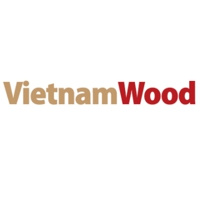- Read all
- Rice
- Fisheries
- Cassava
- Fertilizer & Pesticide
- Coffee
- Animal Feed
- Cocoa
- Seed
- Tea
- Wood
- Pepper
- Agricultural Cooperations
- Cashew
- Agricultural Investments
- Rubber
- Governmental Policies
- Sugarcane
- Agricultural Startup Ecosystem
- Corn
- Technological Innovations
- Spices
- Organic Agriculture
- Bean
- Food Manufacturing
- Fruit & Vegetable
- Agricultural Value Chain
- Flower
- Water & Waste Management
- Meat
- Processed Food
- Dairy
- Plant Originated Products
- General Agro Commodities
- Animal Originated Products
Vietnam Adjusting To FTAs Faster Than Peers
February 29, 2016
VIETNAM is integrating more rapidly than any other Asean member-countries, except Singapore, according to Vietnam’s Center Institute of Economic Management (CIEM).
Võ Trí Thành, deputy director of the CIEM, also believes that the Vietnamese economy will enter a new thriving period, marked by participation in the Trans-Pacific Partnership.
He urged Vietnamese to study new-generation free-trade agreements (FTAs) carefully to understand rules of origin and meet technical norms to enhance participation in these markets.
Thành further predicted that there would be a boom in the consumption and service industries to benefit end-users.
Thành also said at a conference held by the Vietnam Association of Consumer Goods over the weekend that creation of a 400-page economic-strategy report, entitled 2035, would be officially announced this week.

A Vietnamese woman prays as more than 100 Vietnamese people gather in central Hanoi to commemorate the anniversary of the start of Vietnam’s brief-but-bloody border war with China. The residents lit incense and laid flowers at the statue of King Ly Thai To, a Vietnamese hero, in a ceremony that lasted about an hour without police intervention. There have been no official government commemorations of the war.
Innovations, competition
TrâÌ€n Du LiÌ£ch, member of the National Assembly’s Economic Committee, said existing and future FTAs are expected to promote innovations in the business community to enable firms to compete not only at home, but also on international markets.
With this, Lich said success in the market will be determined by restructuring and creativity, rather than scale.
Lich said businesses need to operate in a climate in which innovations were encouraged and the state played a role in ensuring the market remains operating on the right track.
Vietnam, having great opportunities to increase its economic growth in the coming decades, will help Southeast Asia expand the industrialization process and avoid risks of lower- and middle-income traps, Lich said.
Competition is anticipated to become fiercer, not only at home, but in international markets, and firms improving their competitiveness is critical to being able to take advantage of opportunities.
However, Lich pointed out that the competitiveness of Vietnamese businesses remained low, especially in high-tech industries, capital-intensive sectors and high-end services.
There are some 550,000 existing firms in Vietnam, but only one-fourth of them were capable of exporting, he said, adding that there was also a lack of stability in the quality of their products.
Other problems included high input costs, infrastructure inadequacies and loose links in the production chain. It is now time for Vietnamese businesses to restructure and to mature, according to Lich.
He noted that bad debt, public debt and institutional reforms, in addition to strengthening local markets, must be thoroughly tackled.
Agriculture investment
In agriculture, Vietnam needs to create policies to promote investment that will allow the farming sector to compete internationally.
Investments in agriculture remain modest, although the sector involved nearly 70 percent of the country’s population, while contributing some 18 percent to 22 percent of GDP and 23 percent to 35 percent of the value of all exports.
Yet, investments in agriculture were estimated to account for only 6 percent of the economy’s total investments.
Experts at a meeting held by the Ministry of Agriculture and Rural Development on Friday pointed out that firms were hesitant to invest in the agricultural and rural sector due to bottlenecks in policies and mechanisms, including land-related issues and credit policies.
According to Nguyen Do Anh Tuân, deputy director of the Institute of Policy and Strategy for Agriculture and Rural Development, complicated administrative procedures controlling agro-fishery and forestry companies were discouraging investments.
Reforms
A survey by the think tank in 2014 found that nearly 80 percent of surveyed companies operating in the agricultural, fishery and forestry sectors wanted greater efforts in administrative reforms to create favorable conditions for businesses.
Tuân said that slow tax reforms must be hastened, together with incentives to be created to encourage firms to invest.
Tran Dinh Thien, director of the Vietnam Economics Institute, stressed that it is time to change the view about the role of businesses in agriculture. Businesses should be viewed as the “leader” to drive the farming sector ahead, amid rapid international integration.
Nguyen Manh Hùng, chairman of Nafood Group, said that open policies were important to encouraging firms to invest in agriculture to develop a modern sector with high-quality output and greater productivity.
Further, the farming sector should raise planning and strategy in line with the development of firms, Hùng said.
Additionally, Minister of Agriculture and Rural Development Cao Dúc Phát, at the meeting, said the ministry would create measures to tackle problems faced by firms.
Phat noted that it was important for the agriculture sector to renew its production methods, in which firms played a role in the restructuring process. Supporting firms would mean supporting farmers, Phat said, adding that, without the participation of firms, it would be difficult for farmers.
“The ministry will create favorable conditions for businesses to invest and operate efficiently in the agriculture sector. This is a key in promoting the development of the farming sector,” Phat said.
Khoa Le
Source: Business Mirror
Related news
-
Opportunities for Long An agricultural products to enter the Korean market
Long An province invites Korean businesses to continue investing in the agricultural product processing industry, logistics, health, beauty and importing dragon fruit products, lemons, bananas, rice...August 30, 2022 -
UKVFTA Agreement opens up opportunities for Vietnam's coffee industry
British consumers traditionally drink more instant coffee than European countries. The UKVFTA agreement is opening up opportunities for Vietnam's coffee industry to enter more smoothly than the UK market.August 23, 2022 -
Vietnam and Denmark cooperate towards sustainable agriculture
In the days from August 16 to 19, 2022, the Danish business delegation in the field of Agriculture - Food will have working sessions in Hanoi and Ho Chi Minh City to exchange business and cooperation opportunities with the potential partners in Vietnam…August 18, 2022 -
Issuing 'identity cards' for shrimp seed
'One breed, two lips, three baits, four skills', is an experience passed on to each other to affirm the importance of seed in aquaculture.August 18, 2022 -
New prospects for durian: investing in technologies to boost the value
To increase the value of the commodity chain, Dong Nai province is developing regions specializing in durian cultivation and encouraging investments in durian freezing facilities.August 17, 2022
Events See more

Vietnamplas 2022 - Vietnam International Plastic and Rubber Industry Exhibition
23-03-2023 - 26-11-2022 09:00 - 17:00
Saigon Exhibition and Convention Center (SECC) – 799 Nguyen Van Linh Boulevard, District 7, City. Ho Chi Minh.

GROWTECH EXPO - FLORAPLANTEXPO 2021
02 - 05-11-2022 09:00 - 17:00
Saigon Exhibition and Convention Center (SECC) – 799 Nguyen Van Linh Boulevard, District 7, City. Ho Chi Minh.

VTG 2022
18 - 25-10-2022 09:00 - 17:00
Saigon Exhibition and Convention Center (SECC) – 799 Nguyen Van Linh Boulevard, District 7, City. Ho Chi Minh.

VIETSTOCK 2022 - SPECIALISED EXHIBITION OF LIVESTOCK, FEED AND MEAT PROCESSING IN VIETNAM
12 - 14-10-2022 08:00 - 17:00
799 Nguyen Van Linh, Tan Phu Ward, Dist. 7, Hochiminh City, Vietnam

VTG 2022
21 - 27-09-2022 09:00 - 17:00
Saigon Exhibition and Convention Center (SECC) – 799 Nguyen Van Linh Boulevard, District 7, City. Ho Chi Minh.
.png)
VIETFISH 2022
22 - 26-08-2022 09:00 - 17:00
Saigon Exhibition and Convention Center (SECC) – 799 Nguyen Van Linh Boulevard, District 7, City. Ho Chi Minh.
Business Opportunities See more
-
BURANI INTERFOOD is looking for Buyers in Vietnam
Type:
November 22, 2021
-
BURANI INTERFOOD is looking for Buyers in Vietnam
Type: Wholesaling Meat
November 22, 2021
-
BURANI INTERFOOD is looking for Buyers in Vietnam
Type: Wholesaling Meat
November 22, 2021
-
BURANI INTERFOOD is looking for Buyers in Vietnam
Type: Wholesaling Meat
November 19, 2021
-
BURANI INTERFOOD is looking for Buyers in Vietnam
Type:
November 19, 2021
-
Indian purchaser looking for high quality cashew nut kernel from Vietnam
Type: Exporting Cashew
Mar 14, 2016
534
Limitless database of qualified and verified agricultural partners
124
Exclusive buy & sell leads on specific agricultural commodities
24
Agricultural events in Vietnam and Asia Pacific region
Stay informed!
Enter your email address below to receive updates each time we publishes new content
